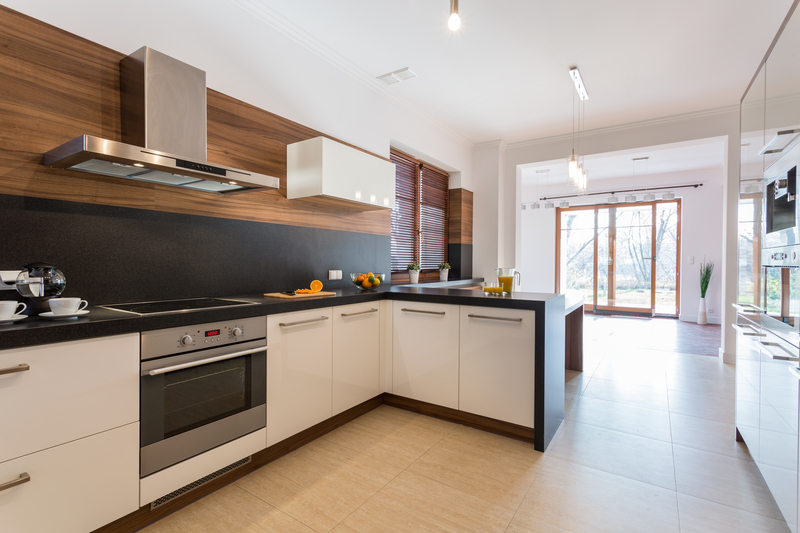Navigate Your Move with Practical Packing Advice
Posted on 18/06/2025
Navigate Your Move with Practical Packing Advice
Moving to a new home can be an exhilarating experience, full of new opportunities and a fresh start. However, the prospect of packing up your entire life to transport it elsewhere can quickly become overwhelming. Whether you're relocating across town or to another continent, understanding the best packing strategies and expert moving advice is crucial for a seamless transition. In this comprehensive article, we share proven tips on how to navigate your move with practical packing advice, ensuring your move is efficient, organized, and stress-free.

Why Effective Packing Matters for Your Move
Packing isn't just about putting things into boxes. It's about protecting your belongings, maximizing space, and minimizing hassles on moving day and beyond. With the right approach, you can streamline your moving process and avoid many common pitfalls.
- Proper packing reduces the risk of damage to your possessions.
- Efficient organization saves time during unpacking.
- Clear labeling helps prevent lost or misplaced items after the move.
- Practical packing solutions can cut costs by minimizing the need for extra transportation or storage.
Step-By-Step Moving and Packing Advice
1. Create a Moving Plan and Checklist
Begin your moving journey by outlining a detailed plan. Create a checklist that breaks down your tasks week by week. An organized move starts with thoughtful preparation, giving you time to gather supplies, sort through belongings, and address logistics.
- 6-8 Weeks Prior: Schedule your moving date, book movers, and start decluttering.
- 4 Weeks Prior: Collect packing materials, notify utility companies, and begin packing non-essentials.
- 2 Weeks Prior: Pack clothes, kitchen items, and fragile objects.
- Moving Week: Box up everyday items, label final packages, and double-check your list.
2. Declutter Before You Pack
A golden rule for any move: don't pack what you don't need. Go through each room, closet, and drawer, separating items into keep, donate, sell, or discard categories. Slimming down your possessions not only reduces the amount of packing required but also lightens your load and potentially lowers your moving costs.
- Clothing: Donate unworn or outdated apparel.
- Books: Gift or sell volumes you no longer need.
- Furniture: Consider whether large pieces will suit your new space.
- Electronics: Dispose of unused or broken devices responsibly.
3. Assemble Quality Packing Supplies
- Use heavy-duty boxes for books and fragile items.
- Stock up on bubble wrap and packing peanuts for electronics or keepsakes.
- Use colored labels or markers for quick identification.
- Invest in wardrobe boxes to transport clothing directly on hangers.
Room-by-Room Packing Guidance
Kitchen Packing Tips and Tricks
The kitchen often poses the greatest packing challenge, thanks to its delicate glassware, appliances, and odd-shaped utensils. Here's targeted packing advice for kitchen success:
- Use original boxes for appliances if available.
- Wrap plates vertically in small bundles with bubble wrap.
- Fill glasses and mugs with packing paper before wrapping.
- Seal spices and liquids tightly in leak-proof bags.
- Pack heavy items at the bottom of the box and lighter ones on top.
Bedroom Packing Essentials
Clothing and personal items require a different tactic. Practical packing advice for bedrooms includes:
- Use wardrobe boxes to keep clothes on hangers.
- Roll clothing to save space and reduce wrinkles.
- Use suitcases for shoes and heavier clothes.
- Pack bedding and towels in large bags to use as padding for fragile boxes.
Living and Dining Room Packing Solutions
For furniture, books, and electronics, consider these best packing strategies:
- Disassemble furniture to ease transport--save screws in labeled bags.
- Wrap TVs and electronics in padded blankets and note any special cords or remotes.
- Store books in small boxes to avoid excessive weight.
- Bubble wrap decorative items and use towels for extra cushioning.
Bathroom Packing Recommendations
Practical packing advice in the bathroom revolves around preventing spills and keeping daily essentials accessible:
- Seal toiletry bottles with plastic wrap and tape.
- Pack a "first-night" bag with toothbrush, towels, and medications.
- Group small items into zippered pouches.
Advanced Packing Tips for an Organized Move
Label Everything Clearly
A well-labeled box saves endless searching and stress later. For optimal organization:
- Mark each box with its destination room and a brief description of contents.
- Color-code or number your boxes for each room.
- Keep a master inventory list for reference at your new home.
Pack Smart: Heaviest Items on the Bottom
Always place heavy items at the bottom of a box with lighter items on top. This simple principle prevents damage to fragile objects and makes stacked boxes more stable during the move.
Don't Underfill or Overfill Boxes
Boxes that are too full risk breaking open, while underfilled boxes can collapse when stacked. Aim for balance, using packing materials to fill empty spaces.
Protect Your Valuables
For important documents, heirlooms, and personal keepsakes, pack them separately and keep them with you during the move.
- Use a portable lockbox for passports, birth certificates, and important papers.
- Keep jewelry and small valuables in your carry-on if flying.
Moving Day Packing Strategies
Essentials Box: Your First-Night Lifesaver
Prepare an essentials box with everything you'll need immediately at your new home--chargers, snacks, bottled water, toiletries, basic tools, and changes of clothes. Label it clearly and transport it yourself.
Load Smart for Easy Unloading
When placing boxes in the moving truck, load by room and by necessity. Place items you'll need first at the back of the truck so they'll be unloaded first.
- Heavier items and furniture go in first, against the back wall.
- Fragile items and essentials are loaded last for quick access.
Sustainable Packing for Your Move
Modern moving is going green. Here's some eco-friendly moving and packing advice:
- Use reusable plastic bins instead of cardboard.
- Repurpose towels and linens as padding for fragile items.
- Recycle boxes or offer them to others after your move.
- Donate unwanted goods and old electronics to prevent landfill waste.
Packing Mistakes to Avoid
- Procrastinating on packing: Start early to avoid last-minute chaos.
- Forgetting to label boxes: Unlabeled boxes will delay your unpacking process.
- Not securing breakables with enough cushioning.
- Packing boxes that are too heavy to lift safely.
- Neglecting to reserve a parking spot for your moving truck.
Maximizing Unpacking Efficiency at Your New Home
Just as you plan your packing, organize your unpacking. Begin by unloading items according to room priority. Start with essentials like beds, toiletries, and kitchen supplies before tackling decor and extras.
- Refer to your inventory list for quick guidance.
- Break down boxes and recycle as you go for an organized space.

Frequently Asked Questions About Packing and Moving
How far in advance should I start packing for a move?
Start packing at least six weeks in advance. This gives you time to declutter, source supplies, and systematically pack by room.
What's the best way to protect fragile items?
Use generous bubble wrap, pack items snugly to prevent shifting, and mark boxes as "fragile." Place plates and glassware upright and fill empty spaces with soft linens or packing paper.
Should I hire professional packers?
Professionals streamline the process, provide quality materials, and bring expertise for packing delicate or valuable items. Consider hiring if you have limited time or complex moving needs.
Conclusion: Smooth Sailing with the Right Packing Advice
Moving doesn't have to be stressful. With thorough planning, practical packing advice, and a touch of creativity, you can navigate your move with confidence and ease. By applying the strategies outlined in this guide, you'll arrive at your new home organized, energized, and ready to start the next chapter of your life. Remember: smart packing is the foundation of a successful, stress-free move!
For more information, bookmark this guide and revisit our moving and packing advice for each stage of your journey. Happy moving!
Latest Posts
Navigate Mattress and Bed Moves Like a Seasoned Pro
Navigate Your Move with Practical Packing Advice
Wise Storage Solutions for Your Freezer: Unused But Well-Preserved


_result.jpg)




